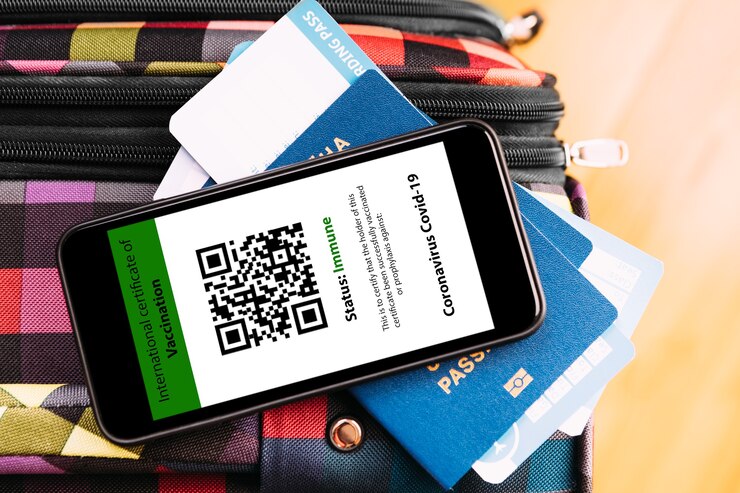Digital Product Passports: A New Era of Transparency and Sustainability
Digital Product Passports: A New Era of Transparency and Sustainability
In 2025, transparency isn’t just a value—it’s a necessity. As global industries race toward net-zero goals and conscious consumers demand more accountability, Digital Product Passports (DPPs) are emerging as the new frontier in sustainable innovation. These digital documents are changing the way we think about product life cycles, ownership, and environmental impact.
Whether you’re in fashion, electronics, furniture, or food, the Digital Product Passport is poised to revolutionize how products are made, sold, and disposed of—ushering in a new era of circular economy thinking.
What Is a Digital Product Passport?
A Digital Product Passport is a digital record that provides detailed, verifiable information about a product throughout its entire life cycle—from raw material sourcing to manufacturing, usage, maintenance, and end-of-life recycling.
Think of it as a product’s digital twin—a constantly updated file that travels with the item and can be accessed via QR code, RFID tag, or blockchain-based platforms.
Why Now? The Forces Behind the DPP Movement
Several converging trends are driving the rise of Digital Product Passports:
- 🌍 Climate urgency & regulations: The EU’s Green Deal and new Circular Economy Action Plan will soon require DPPs for key product categories starting in 2026.
- 🛒 Consumer demand: Shoppers—especially Millennials and Gen Z—want to know how products are made, where they come from, and how sustainable they are.
- ♻️ Circular economy goals: Brands need a way to track materials and plan for reuse, repair, and recycling.
- 🔐 Data transparency: Companies are adopting blockchain and IoT to share trustworthy product data in real time.
What’s Inside a Digital Product Passport?
DPPs vary by industry, but they typically include:
- Material composition
- Place of origin and supply chain journey
- Carbon footprint and water usage
- Product certifications and standards
- Repair instructions and spare part availability
- Ownership history (for resale markets)
- Recycling and disposal guidance
In essence, the DPP turns every product into an open book.
Industries Leading the Way
👗 Fashion & Textiles
From fast fashion to luxury, brands are using DPPs to verify ethical sourcing, trace organic fabrics, and support resale and recycling.
📱 Electronics
With rising e-waste concerns, manufacturers are embedding DPPs to offer repair guidance, track rare materials, and encourage proper recycling.
🛋️ Furniture & Home Goods
DPPs help consumers understand what’s inside their furniture and how to extend its lifespan or dispose of it responsibly.
🚗 Automotive
Car manufacturers are building digital records of part origins, emissions data, and maintenance logs, simplifying resale and leasing.
Benefits of Digital Product Passports
- ✅ For Consumers: Empowered choices, better product care, and confidence in ethical sourcing.
- 🔁 For Brands: Improved transparency, stronger sustainability credentials, and streamlined recycling.
- ♻️ For the Planet: Better tracking leads to reduced waste, emissions, and overproduction.
Challenges on the Horizon
As with any innovation, Digital Product Passports come with hurdles:
- Data standardization: How do we ensure all products speak the same “digital language”?
- Privacy & IP protection: Brands must balance transparency with safeguarding proprietary info.
- Infrastructure demands: Adoption requires investment in software, tagging, and cross-industry collaboration.
Still, these challenges are being actively addressed by tech companies, NGOs, and government bodies pushing for open ecosystems.
Looking Ahead: A 2025 Snapshot
In 2025, Digital Product Passports are shifting from early adoption to mainstream integration. Major brands are already piloting them, and the EU’s coming regulations are setting a global precedent. Over the next few years, we can expect:
- 📲 Wider QR and blockchain adoption
- 🛍️ Standardized DPPs on retail shelves
- ♻️ Connected recycling bins and take-back programs
- 🔄 More transparent resale and secondhand marketplaces
Final Thoughts
Digital Product Passports are more than just digital files—they’re a blueprint for a smarter, more sustainable world. As we move deeper into a circular economy, DPPs will empower consumers, protect the planet, and drive innovation in how we produce, use, and reuse everything we buy.
In short, the age of the anonymous product is ending. In its place? A future where every item tells a story—and it starts with transparency.


